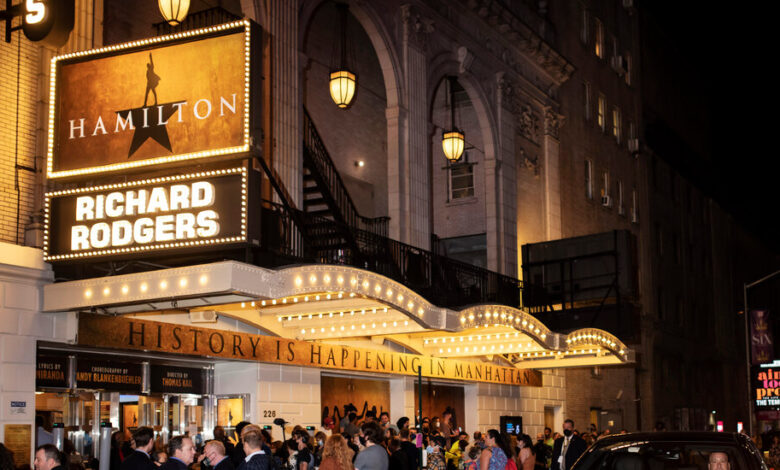Texas Church That Had Added Christian Themes to ‘Hamilton’ Apologizes

A church in Texas that earlier this month staged unauthorized productions of the musical hit “Hamilton,” changing some lyrics to reflect Christian themes, apologized and agreed to pay damages on Tuesday after lawyers for “Hamilton” had demanded that they stop performances.
The version put on this month by The Door McAllen, a nondenominational church in the border town of McAllen, Texas, altered certain words and inserted invocations of Jesus Christ, according to clips posted on Twitter. It also included a sermon stating that God could help people with their homosexuality, as well as with struggles with drugs and alcohol.
A message posted Tuesday to the church’s Instagram page apologized and acknowledged that the performances had not been licensed, as the church’s pastor had claimed.
“We respect the copyrights of Hamilton’s author and contributors,” the message said. “These copyrights are protected by federal law. We acknowledge there are lawful avenues to obtain a license to stage properties which we did not pursue. And it is never permissible to alter an artistic work such as Hamilton without legal permission.”
The post was unsigned but was written in the first-person as the pastor, who is Roman Gutierrez. A man who answered the phone at The Door McAllen on Tuesday afternoon, who declined to be identified, confirmed that the message was posted by the church.
The message added that the church would pay damages. A spokesman for “Hamilton,” Shane Marshall Brown, said Tuesday that “Hamilton” would donate all damages to the South Texas Equality Project, a coalition that supports the local L.G.B.T.Q. community.
In a statement earlier this month, Brown had said, “The ‘Hamilton’ family stands for tolerance, compassion, inclusivity and certainly L.G.B.T.Q.+ rights.” Gutierrez, the pastor, said in a statement to The Dallas Morning News that “everyone is welcome” at The Door McAllen.
While churches may perform copyrighted music during religious services under U.S. copyright law, that exemption does not apply to other public performances.
